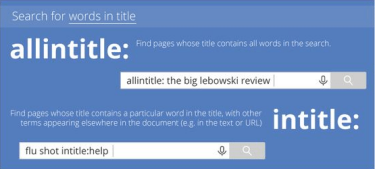
Google Search Functions, 9 Killer Search Functions to Help You Search Like a Pro
Google search functions are specific commands you can use on Google to get information and enhance your search experiences. Experienced SEOs live and die by advanced search functions and use them to audit sites and get the most out of Google. If you are looking to get the most out of Google, you have to learn these killer advanced search functions.
What is Google Search?

Just in case you’ve been living under a rock, Google Search (also known as Google Web Search or simply Google) is a web search engine designed to help people quickly find information. Google is one of the most used search engines on the internet, handling approximately three billion searches each day.
Google Search Functions
Google Search provides many different options for customized searches using Boolean operators. These operators include exclusions (“-xx”), alternatives (“xx OR yy OR zz”), and wildcards (“Winston * Churchill” returns “Winston Churchill”, “Winston Spencer Churchill”, etc.). These options and others can be specified in a different way on the “Advanced Search” page.
For most of us, research starts with the Google search box, where everyone expects to receive precise information from the web. However, knowing how to use Google Advanced Search techniques to find exact and relevant pieces of information is priceless.
Here are some Google Advanced Search Function that can help you find your desired results:
1) To find similar words for a particular word: put a ‘~’ sign before the word in the search box.

2) To search for an exact phrase: encase the word/phrase with quotation marks in the search box.

3) To exclude a word or meaning from a search phrase: use “-” before the word you want to exclude from the search phrase.

When you search for ‘data mining’ in Google, a list of data mining companies and service providers will get placed on the search results page. However, if you search for ‘data mining -company’ you will only find articles and research papers related to data mining, without the list of companies.
4) To search something within a particular website: use the ‘site:’ search operator in your search phrase.

5) To find web pages which contain your search phrase: in the text body, use the ‘allintext:’ search operator.

If you’re looking for web pages that contain one word of your query in text and others in the url or title of same page, use the ‘intext:’ search operator.
6) Search operators ‘allintitle:’ and ‘allinurl:’ within your search phrases will fetch web pages whose title and url contain your search phrase, respectively.

7) If you want to search an item within a fixed price range, you can use two periods(‘..’) to limit the search results for that item within the price range.

8) If you want to search for a particular file type on the web, you can use the ‘filetype:’ search operator.

9) To search for pages which contain one or the other of your search terms: you can use the ‘OR’(capital) search operator. For example, if you want news on ‘Lionel Messi’ from 2013 or 2015, you can use this operator. Without this operator, Google will show all the results on Lionel Messi without narrowing the search results for any particular time.

Google Search Functions are all about refining your search
If you really want customized and precise search results, try out these Google Functions. They are sure to give you more accurate results! Check Google for other search functions.



